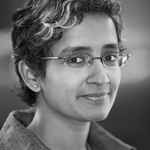Study programme
Programme structure
The Master's programme Theatre Studies comprises 60 ECTS credits: 30 credits for core courses; 12 credits for electives; and 18 credits for a Master's thesis.
-
Key Concepts and Methodologies in Theatre and Performance StudiesPeriod 1Period 212
-
Restricted-choice electivesPeriod 1Period 2Period 318
Students should pick two of the following courses: - Spectatorship and Education: Researching Audiences - Theatre and Globalisation - Decolonizing the Archives in the Arts
-
Free-choice electivesPeriod 4Period 512
-
Master's Thesis Theatre StudiesPeriod 4Period 5Period 618
-
Core courses
Next to the core module ‘Key Concepts and Methodologies in Theatre and Performance Studies’ you choose two of three disciplinary electives (Archiving Art, Theatre and Globalisation, Spectatorship and Education) in the first semester/year. In the second semester/year you choose from cross-disciplinary electives (Art and Activism, Music Theatre as a Laboratory) and the Practical Project.
-
Electives
You can tailor the programme to your own curiosities through a range of electives that cater to various topical and disciplinary interests:
- In Archiving Art, you are provided with the latest theoretical, historical as well as practical knowledge on archiving;
- In Theatre and Globalisation, you are familiarised with topical questions concerning the relationship of theatre and performance to the contemporary global moment;
- Spectatorship and Education: Researching Audiences focuses on field studies in spectatorship and theatre and education;
- Music Theatre as a Laboratory examines music theatre in the context of modernity;
- In Art and Activism, you are familiarised with the interrelations between performance, visual arts and activism.
- You can also join a Practical project, in which you work in a team of fellow students to stage a performance.
-
Tutorials
Tutorials offer you the opportunity to become intimately acquainted with specialist literature, research methods and current discussions in Theatre and Performance Studies. The exact content of a tutorial depends on your interests and study plan, as well as the expertise of the tutor.
-
Internship
Internships are not a structural part of the programme due to its short duration. However, in exceptional cases, internships are possible with prior consent from the Examination Committee.
-
Thesis
The Master's thesis reports on independent research carried out by the student. The student follows an intensive group mentoring programme to develop their thesis ideas followed by individual supervision with a faculty member with the necessary expertise in the chosen area of interest.
-
Excursions
The programme involves informally organised visits to performances and festivals that happen throughout the year in Amsterdam.

A graduate degree in Theatre Studies offers you the opportunity to specialise in theatre and performance with an emphasis on research, including historical aspects, criticism and analysis. No matter what your chosen professional direction is, graduates of the Theatre Studies programme become passionate and articulate advocates of the arts.Dr Sruti Bala
Theatre Studies in part-time mode
The programme is also offered in part-time study mode at the UvA, in which case it takes two years. You can obtain a maximum of 30 ECTS per year (15-20 ECTS per semester). As a part-time student you will follow the programme together with full-time students. You will prepare your study plan for the part-time programme in consultation with this Master’s programme coordinator.
Credit transfer
Students who show exceptional promise during a regular or professional programme are encouraged to continue their studies in a research programme. Once students are admitted to the research programme, they can transfer credits earned during their previous course of study towards their Research Master's degree. The Examinations Board determines which courses qualify for transfer.